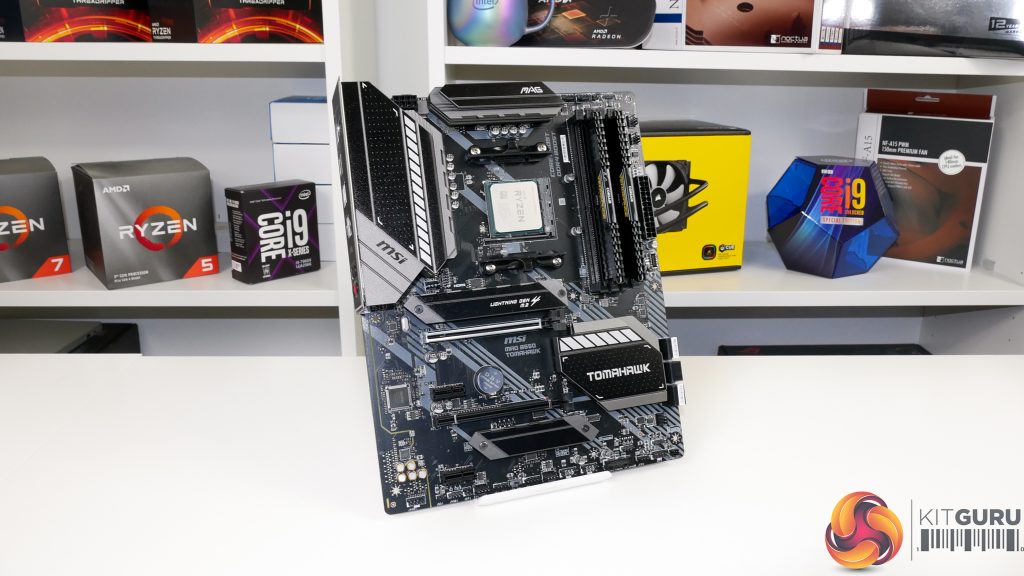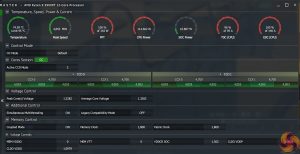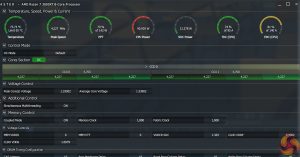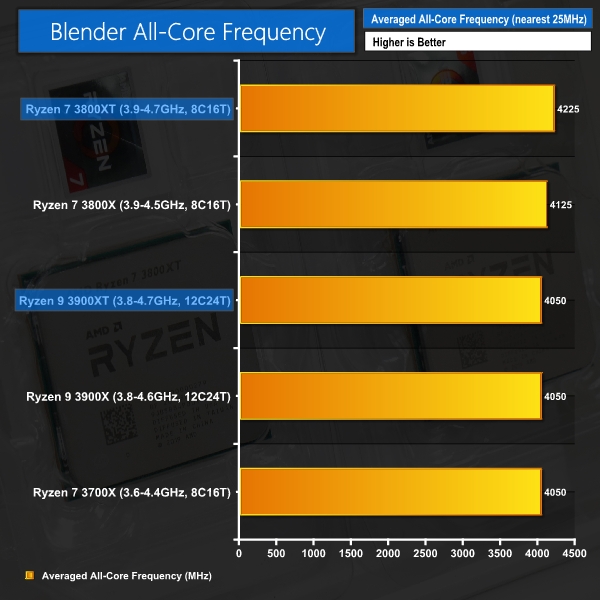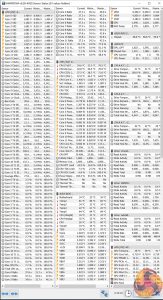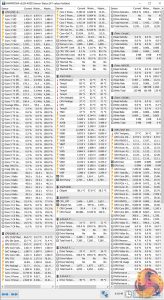Stock-Clocked Operating Frequencies:
We use a combination of ASUS X570 and MSI B550 motherboard for checking frequencies and overclocking capabilities. The chips were cooled by a 280mm AIO.
Ryzen 9 3900XT versus Ryzen 9 3900X All-Core Loaded Frequency:
The Ryzen 9 3900XT runs at around 4050MHz all-core loaded frequency in Blender using our 280mm AIO cooler.
This is actually the exact same level as our early-2020 manufactured Ryzen 9 3900X 12-core chip. Put simply, this is an early indication that whilst the Ryzen 9 3900XT may technically have higher frequency capability than its 3900X sibling, the limits imposed by the Precision Boost 2 algorithm can quickly inhibit any real frequency gains. Both processors hit their 142W PPT allowance associated with the 105W TDP ratings and could not boost any higher.
Of course, other loading situations such as single-threaded, lightly threaded, or simply less demanding all-core tasks may show better boost clock capability from the Ryzen 9 3900XT. But, our heavy all-core load in Blender showed no difference between our Ryzen 9 3900XT and Ryzen 9 3900X samples.
Ryzen 7 3800XT versus Ryzen 7 3800X All-Core Loaded Frequency:
The Ryzen 7 3800X runs at around 4225MHz all-core loaded frequency in Blender using our 280mm AIO cooler.
This is around 100MHz higher than we recorded from our early-batch Ryzen 7 3800X that would stick to 4125MHz all-core. Critically, the lower core count of these eight-core chips means that the 142W package power limit in the Precision Boost 2 algorithm is less of a frequency boosting inhibiter.
100MHz higher clock speed out of the box with the same motherboard and cooling hardware is a promising early sign of the types of clock speed improvements we may see from the XT chips.
Also worth highlighting is that the Ryzen 7 3800XT enjoyed a higher clock speed increase versus the lower cost, TDP-reduced Ryzen 7 3700X eight-core chip.
Ryzen 9 3900XT versus Ryzen 9 3900X Maximum Boost and Cinebench 1T Loaded Frequency:
Our early-2020 manufactured Ryzen 9 3900X ran the Cinebench 1T workload with a real averaged operating frequency of around 4500MHz based on the actual preferential cores loaded during the test.
By comparison, the 3900XT and its 0.1GHz rated maximum boost clock increase showed an improvement. The new 12-core XT chip operated at a real averaged frequency of 4575MHz on the cores loaded during the workload. This 75MHz increase is a reasonable uptick in the actual operating clocks during our data monitored Cinebench 1T run.
We also saw the maximum boost frequency of 4.7GHz being hit and surpassed for a reasonable number of our HWiNFO data readings.
Ryzen 7 3800XT versus Ryzen 7 3800X Maximum Boost and Cinebench 1T Loaded Frequency:
Our mid-2019 manufactured Ryzen 7 3800X ran the Cinebench 1T workload with a real averaged operating frequency of around 4450MHz based on the actual preferential cores loaded during the test.
By comparison, the 3800XT and its 0.2GHz rated maximum boost clock increase showed a sizable improvement. The new 8-core XT chip operated at a real averaged frequency of 4625MHz on the cores loaded during the workload. I would argue that a 175MHz increase in the real operating frequencies during our monitored Cinebench 1T run is an impressive improvement from X to XT chip.
We also saw the maximum boost frequency of 4.7GHz being hit and surpassed for a reasonable number of our HWiNFO data readings. It was also clear to see that the Ryzen 7 3800XT was better able to push all cores closer to the maximum boost frequency, as indicated by some of the ‘maximum’ readings in HWiNFO.
While our Ryzen 7 3800XT showed around 50MHz higher boost behaviour than our 3900XT sample in our Cinebench 1T test run, we spoke to AMD and there should be no particular reason why the eight-core chip is pushing higher than the twelve core. Both CPUs have the same maximum frequency rating, so this could be related to individual processor variance (which was also highlighted as unlikely by AMD), operating temperatures, or the way in which each CPU interacts with our monitoring software.
Be sure to check out our sponsors store EKWB here
 KitGuru KitGuru.net – Tech News | Hardware News | Hardware Reviews | IOS | Mobile | Gaming | Graphics Cards
KitGuru KitGuru.net – Tech News | Hardware News | Hardware Reviews | IOS | Mobile | Gaming | Graphics Cards


